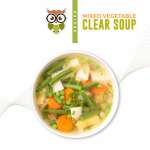Supplements #3
Athletes are a group that use supplements for a myriad of reasons

We are back with our supplement series for the month! So far, we have covered protein and protein related supplements and commonly used vitamin and mineral supplements. While the former is still a never ending list, this article aims to cover more performance oriented supplements. Athletes use supplements for a variety of reasons:
- To aid in faster recovery from training
- General health benefits
- For performance benefits
- To treat illnesses
- To compensate for a poor diet
Athletes are always on the lookout for something to boost their performance. This article will cover supplements whose efficacy is backed by science. These supplements have been extensively researched and have been found to benefit different types of sports. If you are an athlete, why not give this a read!
Nitrate:
What is Nitrate?
Nitrate is a molecule that plays an important role in the nitrogen cycle and also in cardiovascular health, blood pressure and exercise performance.
Where do you find nitrates and how does it actually work?
Dietary sources of nitrates include fruits, vegetables and processed meats (1). Vegetables such as beetroot, celery, spinach, rocket (argula) and lettuce are rich in nitrate. High amounts are also found in cabbage, kohlrabi,parsley and fennel (1). Dietary nitrate is converted to nitrite (by bacteria in the mouth and gastrointestinal tract) and further reduced to nitric oxide (1). This nitric oxide is what causes vasodilation (widening of the blood vessels) and results in decreased blood pressure. Nitric oxide also seems to play a role in calcium handling, glucose uptake, neurotransmission and muscle force production.
Why would athletes find supplementation beneficial then?
The content of nitrate found in green leafy vegetables and beetroot vary with soil conditions, time of year and even storage. Hence, like any other supplement, as the specific dose of nitrate is known, athletes would benefit from its usage. This is beneficial when performance is a goal. It has been shown that dietary nitrate supplementation lowered oxygen uptake during moderate to heavy intensity exercise in healthy participants (2). A recently published systematic review and meta-analysis concluded that dietary nitrate supplementation can positively impact endurance exercise capacity (3).
What about the dosage?
About 5-9 mmol of nitrate ingested 2-2.5 hours before an exercise session for about 1-28 days is effective (4,5).
Would only athletes benefit from nitrate?
Not only does dietary nitrate help in performance, since nitrate lowers blood pressure (6), it could potentially help in the general population as well. Not everyone needs to supplement with nitrate! Inclusion of good amounts of beetroot and green leafy vegetables into your daily diet is a great starting point!
Caffeine
What is caffeine and where is it found?
Caffeine is the most widely used psychoactive drug or stimulant. Yes! It is a drug! Like we all know, it is found in coffee beans, tea leaves and cocoa beans. Infact, as you would have all noticed caffeine is also added to energy drinks and soft drinks. However, the amount of caffeine in these sources vary. Caffeine is now available as pills, gels and even gums!
How does it act as a well known stimulant?
We all know that drinking a cup of coffee is the best wake me up drink! The stimulatory effects of caffeine are attributed to its effect on the central nervous system. Caffeine is a competitive inhibitor of adenosine which is responsible for relaxation. Caffeine thus binds to the adenosine receptors in the brain and stimulates the nervous system. (7)
Is caffeine a fat burner?
Caffeine does seem to increase metabolic rate and fat oxidation (8). However, as a standalone supplement it is not effective in reducing body weight. While it does boost fat metabolism marginally (9), the effects of caffeine are highly variable from person to person.
Why do athletes supplement with caffeine?
Caffeine has been shown to improve performance across a variety of sports. Endurance performance (7, 10) and team sports (11) performances have seen an improvement with caffeine supplementation. Infact, the position stand on caffeine from the International Society of Sports Nutrition (12) recognises its performance benefits on strength, sprint and power based sports as well. Acute ingestion has also been shown to increase pain tolerance and perceived effort (13).
What is the dosage and duration of caffeine supplementation?
The suggested dosage for caffeine supplementation ranges from 3-6 mg/kg body weight about 30-60 minutes before the onset of exercise (12).
Are there any side effects of caffeine consumption/supplementation?
Excessive caffeine consumption, greater than the recommended dosage could result in dependency, anxiety and gastrointestinal discomfort. Caffeine consumption in the evenings might interfere with sleep quality later at night as well.
Caffeine and nitrate are two supplements that have extensive research backing their efficacy. In fact, any supplement that you choose should be effective for the particular sport you are using it for! It is evident that caffeine works well across sports while nitrate might work best for an endurance based sport. With the supplement series, our aim is to ensure you all are educated and make an informed choice when it comes to nutritional supplements.
References
1) Hord N, Tang Y, Bryan N. Food sources of nitrates and nitrites: the physiologic context for potential health benefits. The American Journal of Clinical Nutrition. 2009;90(1):1-10.
2. Pawlak-Chaouch M, Boissière J, Gamelin F, Cuvelier G, Berthoin S, Aucouturier J. Effect of dietary nitrate supplementation on metabolic rate during rest and exercise in human: A systematic review and a meta-analysis. Nitric Oxide. 2016;53:65-76.
3) McMahon N, Leveritt M, Pavey T. The Effect of Dietary Nitrate Supplementation on Endurance Exercise Performance in Healthy Adults: A Systematic Review and Meta-Analysis. Sports Medicine. 2017;47(4):735-756.
4) Jones A. Dietary Nitrate Supplementation and Exercise Performance. Sports Medicine. 2014;44(S1):S35-45.
5) Naderi A, de Oliveira E, Ziegenfuss T, Willems M. Timing, Optimal Dose and Intake Duration of Dietary Supplements with Evidence-Based Use in Sports Nutrition. Journal of Exercise Nutrition & Biochemistry. 2016;20(4):1-12.
6) Siervo M, Lara J, Ogbonmwan I, Mathers J. Inorganic Nitrate and Beetroot Juice Supplementation Reduces Blood Pressure in Adults: A Systematic Review and Meta-Analysis. The Journal of Nutrition. 2013;143(6):818-826.
7)Graham T, Spriet L. Metabolic, catecholamine, and exercise performance responses to various doses of caffeine. Journal of Applied Physiology. 1995;78(3):867-874.
8)Acheson K, Zahorska-Markiewicz B, Pittet P, Anantharaman K, Jéquier E. Caffeine and coffee: their influence on metabolic rate and substrate utilization in normal weight and obese individuals. The American Journal of Clinical Nutrition. 1980;33(5):989-997.
9) Jeukendrup A, Randell R. Fat burners: nutrition supplements that increase fat metabolism. Obesity Reviews. 2011;12(10):841-851.
10) Pasman W, van Baak M, Jeukendrup A, de Haan A. The Effect of Different Dosages of Caffeine on Endurance Performance Time. International Journal of Sports Medicine. 1995;16(4):225-230.
11) Stuart G, Hopkins W, Cook C, Cairns S. Multiple Effects of Caffeine on Simulated High-Intensity Team-Sport Performance. Medicine & Science in Sports & Exercise. 2005;37(11):1998-2005.
12) Goldstein E, Ziegenfuss T, Kalman D, Kreider R, Campbell B, Wilborn C et al. International society of sports nutrition position stand: caffeine and performance. Journal of the International Society of Sports Nutrition. 2010;7(1):5.
13) Duncan M, Stanley M, Parkhouse N, Cook K, Smith M. Acute caffeine ingestion enhances strength performance and reduces perceived exertion and muscle pain perception during resistance exercise. European Journal of Sport Science. 2013;13(4):392-399.


